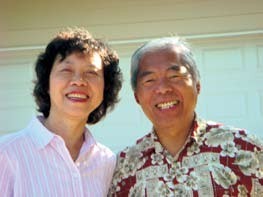
偷工減料電子書繁

吳國銘牧師 簡介
1978年蒙恩得救,1984年神告訴我要憑信心生活並顯明幫助立穩教會的根基。
1999年9月在聖靈的帶領下成立蒙愛的教會,2002年神顯明建造颱風眼教會(榮耀末世教會)的呼召,2005年11月由加州洛杉磯遷往美國密蘇里州堪撒斯市(KansasCity)等候尋求神,對建造榮耀末世教會有較深入的開啟。又因國際禱告之家(IHOPKC)24小時的禱告敬拜環境,聖靈做了多層面生命紮根和潔淨的工作,並於聖靈的引導下完成《偷工減料》一書,歷經約九年之久,終於2010年8月在台灣出版。然後設立蒙愛教會活動講台。接著被聖靈差遣到休士頓、洛杉磯、紐約、台灣、香港、日本、中國等地傳講神的心意。這段傳遞信息期間,聖靈不斷地賜下更全備的信息,使第三版的偷工減料更趨完整。
吳牧師服事的主要內容是傳悔改和恩膏的信息,提高基督徒的異象,恢復神所要造的人,和傳遞神所要建造的教會。目的是要讓華人能肩負起將福音傳回耶路撒冷的重責大任。所到之處按著聖靈的帶領傳遞聖靈與火和聖靈恩賜與恩膏以及醫治與釋放。
(吳牧師的主要信息,人的問題與答案,隨書贈送。復興的兩個鑰匙──悔改和恩膏,及神完整的救贖計劃。這兩套MP3在以琳書房均有出售。)
目 錄
前言 9
三版序 12
為甚麼要寫這本書 15
第一章 順服神的託付 16
第二章 教會真理恢復的必要性 19
第三章 為建造榮耀末世教會鋪路 21
第四章 讓基督徒更能明白自己的屬靈位置 23
真理篇(一)恢復神所要造的人 27
第一部份 神造人 29
第一章 認識造人的神 30
第二章 神為甚麼要造人 41
第三章 神要造怎樣的人 46
第四章 人的潛能與危險 55
第五章 明白神造人計劃應有的概念 62
第二部份 人的問題 71
第六章 人問題的嚴重性 72
第七章 人問題的複雜性 82
第八章 人問題的普遍性 85
第九章 人生命改變的困難度 91
第十章 為什麼分別善惡是人類的網羅和祝福? 95
第十一章 解決人類的分別善惡是新約聖經中的核心 104
第三部份 神為人預備救恩的管道 113
第十二章 神預備救恩的全貌 114
第十三章 福音的基本內容 120
第十四章 教會要傳悔改與赦罪的道 124
第十五章 教會要傳天國的福音 135
第四部份 神恢復所要造之人的過程 141
第十六章 經過重生 142
第十七章 領受水洗靈洗 145
第十八章 得勝試探 149
第十九章 取得恩膏 152
第二十章 住在基督裡 159
第二十一章 藉著進入會幕遇見基督 164
第二十二章 住在基督裡是人類問題的答案 169
第二十三章 段落結論 175
真理篇(二)建造榮耀末世教會 177
第一部份 四福音中的教會 179
第一章 恢復教會真實意義的必要性 180
第二章 從四福音看神對建造榮耀末世教會的心意 186
第三章 四福音是建造榮耀末世教會的最高啟示 198
第四章 從四福音看建造榮耀末世教會的藍圖 213
第二部份 使徒行傳中的教會 229
第五章 使徒行傳中有兩種教會 230
第六章 建造榮耀末世教會的基本前提 236
第七章 使徒行傳中建造榮耀末世教會的啟示 241
第八章 家庭教會的探討 250
第三部份 新約書信中的教會 257
第九章 新約書信中教會的含意 258
第十章 使徒書信中顯明教會的問題 264
第十一章 認識魔鬼的詭計 272
第十二章 榮耀末世教會的焦距 280
第十三章 現今教會如何與建造榮耀末世教會接軌 288
第十四章 段落結論 305
應用篇(一)彰顯基督生命的工夫 307
第一部份 從心開始 309
第一章 讓心轉變的重要因素 310
第二章 蒙神喜悅的心 318
第三章 走出黑暗進入光明的操練 324
第二部份 由愛著手 329
第四章 認識神的愛 330
第五章 在愛中重建分別善惡的新秩序 339
第六章 在愛中建立關係 342
第三部份 進入關係 345
第七章 建立與神親密的關係 346
第八章 一體的奧秘 354
第九章 從五本智慧書看人與神關係的建立 359
第四部份 帶出生命 373
第十章 如何脫去舊人穿上新人 374
第十一章 彰顯基督生命的奧秘(1)──生死不斷地轉換 378
第十二章 彰顯基督生命的奧秘(2)──將光暗分開 381
第十三章 作新造的人 386
應用篇(二)彰顯聖靈能力的工夫 391
第一部份 從靈開始 393
第一章 認識靈的重要性 394
第二章 為甚麼要被聖靈充滿 398
第三章 為甚麼不能被聖靈充滿 403
第四章 如何領受聖靈的洗 416
第五章 說方言說預言和醫病的價值 420
第六章 被聖靈擊倒可能發生的現象與原因 433
第七章 維持與聖靈親密關係的秘訣 436
第二部份 由信著手 443
第八章 信心的兩個層次 444
第九章 認識信徒的屬靈權柄 449
第十章 信心往下紮根的工夫 460
第十一章 如何聽見神的聲音 466
第三部份 進入國度 469
第十二章 亞伯拉罕的神以撒的神雅各的神 470
第十三章 神國度的降臨 479
第十四章 蒙神揀選進入神國度的人 486
第十五章 如何才能彰顯聖靈的能力? 494
第十六章 認識聖靈 503
第十七章 聖靈彰顯的兩階段性──從靈洗到火洗 509
第十八章 基督的靈與神的靈 513
第十九章 神的靈彰顯的關鍵 517
第二十章 神的僕人使女如何釋放出聖靈的能力 522
第二十一章 段落結論 561
應用篇(三) 彰顯神榮耀的工夫 563
第一部份 從己開始 565
第一章 認識自己 566
第二章 認識神管教的手 572
第三章 認識榮耀與十字架 575
第四章 認識曠野與生命煉淨的關係 579
第五章 認識恩膏是不斷降服的報酬 583
第六章 認識分別善惡和十字架的關係 586
第二部份 由望著手 589
第七章 仰望 590
第八章 盼望 593
第九章 忍耐 597
第三部份 進入基督 599
第十章 進入基督裡的特徵 600
第十一章 兩種恩膏及其互補性 604
第十二章 恩賜與恩膏的區別 608
第十三章 恩膏的失去與恢復 613
第十四章 恩膏運行必須注意的事項 623
第十五章 在基督(恩膏)裡的服事 629
第四部份 帶出榮耀 635
第十六章 被神成全的生命 636
第十七章 彰顯神榮耀的作為 641
第十八章 在恩膏裡彰顯神榮耀的七個層次 646
第十九章 主耶穌在地上所下的工夫 650
第二十章 總結論 655
讀者的回應、後記、附錄 657
讀者的回應 658
後記:完成主的託付 669
附錄一:走出黑暗禱告實用手冊 673
附錄二:” ‘Church’ Isn’t in the New Testament ” 683
附錄二:”‘Church’ Isn’t in the New Testament”
by Lonnie Lane
It’s true. Our much used and loved term “church” isn’t in the New Testament. But could it be that name for “church” that we’ve become so accustomed to conveys something that leaves out or presents an alternative picture to what God had in mind for
the Body of Messiah?
Now before I go any further, I just want to say I’m not anti-anything nor starting any revolutions here. I’m just presenting some information. God in His time will do what God wants to do. I’m just presenting the facts. But I do want to see the Body of Messiah be all that is Lord-worthy and for us to impact the world around us. I’m
wondering if this may just be a key to more “Kingdom-vision” than our “church-
vision” has equipped us for. Read on to see what I mean. You need to read through
the linguistic part to understand the real meat of the issue. Then you can decide for yourself.
With the resurrection of Hebrew as a language along with the many archaeological findings, the Old Testament has come alive as we’ve learned what life was like and what certain phrases meant to the original hearers of the Scriptures. The same is true for the New Testament and Greek manuscripts. We now have a much better grasp of life back then than, say, the translators of the King James Bible understood. Some words and phrases have come into question and been redefined in more recent translations. But one word we still hang on to seems to need to be revisited. Namely, that the word
“church” isn’t in the original Greek manuscripts. What meaning, if any, could that
have for us today?
To begin with, the King James translation uses the word “church” 112 times, having translated the word ecclesia to mean “church.” First let’s look at where they got the word church. The word comes from the Old English and German word pronounced “kirche.” In Scotland and Northern England it was “kirk” and meant what we think of as church. Funny to think of someone, like Kirk Douglas as being named Church Douglas, especially since he was actually Jewish, but that’s where the name Kirk derives from.
In the earlier Greek it was pronounced “ku-ri-a-kos” or “ku-ri-a-kon.” a word that doesn’t remotely resemble the Greek word “ecclesia” which it somehow replaced. The meaning of “ku-ri-a-kos” is understood by its root, “ku- ri-os,” which means “lord.” Thus, “kuriakos” (i.e., “church”) means “pertaining to the a lord.” It refers to something
that pertains to, or belongs to, a lord, not necessarily ‘the’ Lord. The Greek “kuriakos”
eventually came to be used in an Old English form as “cirice” (pronounced kee-ree-ke), which evolved to “churche” (pronounced kerke), and eventually to “church” as we use it today. A church, then, is correctly something that “pertains to, or belongs to, a lord.”
The word “church” would have been an acceptable translation for the Greek
word “kuriakos.” But the translators inserted the word “church” in the English versions, even though they were not translating the Greek word “kuriakos.” The word
they were supposed to be translating was “ecclesia.”
Even the most liberal translator today would never find “church” as the acceptable
translation for the Greek word “ecclesia.” “Ecclesia” is an entirely different word with an entirely different meaning than “kuriakos.”
The Greek word “kuriakos” actually only appears in the New Testament two times. It is found once in I Corinthians 11:20 where it refers to “the Lord’s supper,” and once again in Revelation 1:10 where it speaks of “the Lord’s day.” In both of those cases, it is translated “the Lord’s..,” not “church.” Even though the word does not appear again in the New Testament the word “church” as it has come to be known in the English language has replaced “ecclesia.”
Does any of this really make a difference? It does if we want our understanding to be what Matthew, Luke, Paul, Peter and John envisioned when they each referred to what we think of as “church.” So, let’s now look at the correct meaning of the word, “ecclesia”. This Greek word is found in the New Testament approximately 115 times,
and that’s just in this one grammatical form. It appears also in other forms. There are three exceptions in the King James translation where it is properly translated. They are found in Acts 19:32, 39, 41. Here the translators used the word “assembly” instead of “church.” But, the Greek word is exactly the same as the other 112 entries where “church” was used.
In Acts 19, “ecclesia” is a town council, a civil body of people gathering together in Ephesus. So you can see that “church” wouldn’t work there as they had nothing to do with gathering as a body of believers. Still, 112 other times the translators used the word “church” when translating “ecclesia.” The Greek word “ecclesia” is correctly
defined as “the called-out (ones)” The term “ecc” in Greek means “out”; kaleo
means “call.” So you can see how this word was used to indicate a (civil) group of
select (called or elected) people and really doesn’t have anything to do with them being Believers in Yeshua.
According to the Encyclopedia Britannica: In the New Testament, “ecclesia” is the only single word used for church. It (ecclesia) was the name given to the governmental
assembly of the city of Athens, which ‘called out’ proper officers possessing all
political power including even juridical functions.
So we can see that the term “ecclesia” in Greece had no resemblance to a church or a body of believers. An “ecclesia” was an assembly in Athens having to do
with town politics and other civil issues even before the writing of the New Testament.
Quoting from the Oxford Universal English Dictionary on the word “ecclesia”, “the word means “summoned,” especially the general assembly of Athenians. Later used for church.”